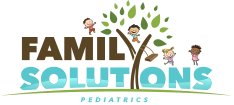Oral motor deficits

Oral Motor Deficits
If your child is having trouble controlling her mouth muscles to talk and eat, and doesn’t seem able to master chewing, blowing, or making specific sounds, she may have an oral motor disorder. While these are physical issues, they can have a neurological component.
Oral motor disorders can fall into three main areas:
- Oral or verbal apraxia – the inability to get the mouth to do what the brain tells it to do due to motor planning difficulties
- Dysarthria – the inability to eat safely or speak clearly due to muscle weakness or sluggishness
- Delay in the development of the musculature for eating
Oral motor disorders can be caused by incorrect motor programming of the muscles of the mouth – the brain sends a message to the mouth muscles, but the muscles either don’t receive or misinterpret the message. Then the muscles don’t move or move in the wrong way, making it difficult to manage food in the mouth and to produce intelligible speech. Some children have difficulties remembering the movements so that they can become automatic.
Low muscle tone of the lips, tongue, or jaw can be another cause. Children with low muscle tone in the jaw often have their mouth open. Children with weak lips have trouble puckering up to drink from a straw, and often lose control of liquids while trying to drink. A weak tongue makes it hard to push food around the mouth while eating. Drooling also can be a problem associated with low muscle tone.
Weak muscles can affect a child’s gag reflex or cause a child to choke, which makes eating unpleasant, creating a feeding disorder. So, strengthening the muscles and resetting the neural pathways is essential in treating oral motor and feeding disorders.
The therapist will conduct an oral motor assessment:
- Checking for signs of weakness or low muscle tone in the lips, jaw, and tongue (dysarthria).
- Seeing how well the child can coordinate mouth movements by having her imitate non-speech actions such as moving the tongue from side to side, smiling, frowning, and puckering the lips
- Evaluating the coordination and sequencing of muscle movements for speech while the child performs tasks such as the diadochokinetic rate, in which the child repeats strings of sounds such as puh-tuh-kuh as fast as possible
- Testing the child’s skills in “real-life” situations, such as licking a lollipop, and comparing this to skills in “pretend” situations, such as pretending to lick a lollipop
If therapy is recommended, the therapy will often start with oral motor exercises to strengthen or improve coordination of mouth muscles, which can be fun—blowing bubbles through a variety of blowers, using straws to drink, whistling, licking suckers in various positions, making funny faces, and other mouth games. Therapy will move to progressively challenging tasks designed to increase strength and improve oral movements for chewing and manipulating various kinds of food and for producing clear speech sounds. Since practice makes perfect, you will be provided with a home program for daily practice to build muscles and skills.
Monroe
Counseling Center
1105 Hudson Lane,
Monroe, LA 71201
318-322-6500
CenturyLink Counseling
100 CenturyLink Drive,
Monroe, LA 71203
318-362-1500
Pediatric Therapy
1300 Hudson Lane, Ste. 7,
Monroe, LA 71201
318-361-7180
Autism Center
1300 Hudson Lane, Ste. 9,
Monroe, LA 71201
(318) 600-6640
West Monroe
Autism Center
107 McMillan Road
West Monroe, LA 71291
(318) 600-6640
Ruston
Counseling Center
206 E. Reynolds Drive
Ste E1
Ruston, LA 71270
318-255-2922
AutismCenter
206 E. Reynolds Drive
Ste C3
Ruston, LA 71270
(318) 600-6640
Pediatric Center
206 E. Reynolds Drive
Ste C3
Ruston, LA 71270
318-224-9177
WINNSBORO
Autism Center
4279 Front Street
Winnsboro, LA 71295
318-605-2636
Olla
Autism Center
3036 Robert Street
Olla, LA 71465
(318) 600-6640
